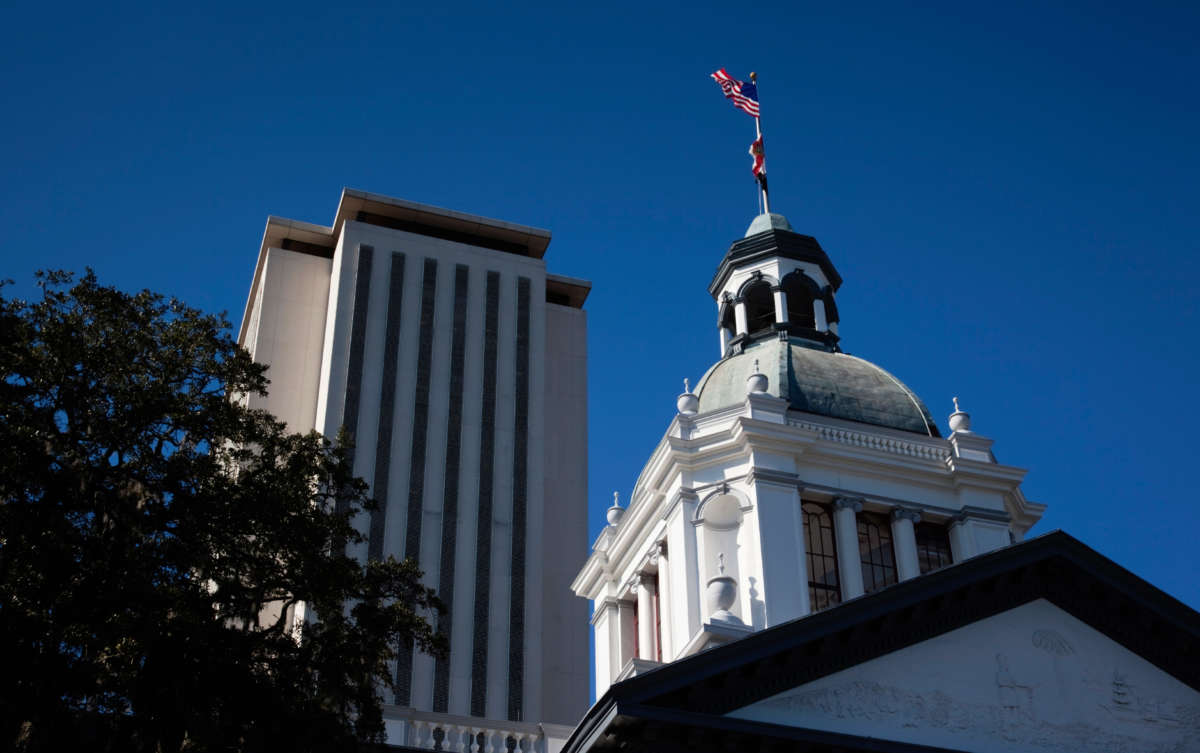Truthout is an indispensable resource for activists, movement leaders and workers everywhere. Please make this work possible with a quick donation.
Legislation aimed at curtailing conversations relating to LGBTQ issues in Florida classrooms may become more restrictive than originally planned, as the bill’s author has placed an amendment on the proposal that would require teachers to “out” their students to their parents if they discover their sexual orientation is anything but heterosexual — even if doing so produces predictable harms to a child’s well-being.
The legislation, sponsored by Republican state Rep. Joe Harding, bans discussion of LGBTQ issues in primary school classrooms and places severe limits on how such topics can be talked about in older grades, subjecting a wide range of discussions to an undefined age-appropriate litmus test.
“The likely outcome of the bill would be to deter teachers from addressing these issues and to chill open discussions and support for lesbian, gay, bisexual, and transgender students,” Ryan Thoreson, a researcher at Human Rights Campaign, wrote earlier this month.
The bill also originally required teachers to disclose to parents or guardians information about a student’s sexual orientation if they found out that a student is gay, transgender, or anything other than a cisgender heterosexual person. But the bill as it was initially written allowed for teachers to hold back on releasing that information to parents if they believed doing so could result in abuse or neglect of the student.
Harding’s latest amendment removes that option, instead requiring teachers or other school staff to “out” students to their parents or guardians within six weeks of discovery, regardless of possible detrimental and harmful outcomes.
Republican Gov. Ron DeSantis, who is supportive of the bill, said he backs the amendment, saying recently that he opposes keeping parents “out in the dark” about their children’s LGBTQ status. But activists said the idea is a dangerous one that could cause harm to children in the state.
The amendment is an “all-out attack on LGBT students and families,” said Michael Womack with Equality Florida, adding that Republicans have “doubled down on the cruelty of this bill with this new amendment and it’s disgusting.”
“Discovering one’s sexuality and sharing that information (or not) is for an individual to decide, not for a school administrator to creep around, seeking to weaponize their ‘findings,'” the Color of Change Twitter account opined.
Alejandra Caraballo, clinical instructor at Harvard Law School’s Cyberlaw Clinic, also noted that the bill as proposed could result in a new way for bullies to harass their peers in the hallways, without a way for LGBTQ students to tell school staff about it, lest they get outed to their parents, too.
“A horrific aspect of the new Don’t Say Gay bill amendment is that it creates a massive incentive for students to extort and blackmail queer students,” Caraballo wrote. “They couldn’t tell a teacher because the school staff will still be forced to out the kids. How much abuse will this bill enable?”
A plurality of Floridians have stated that they are against the implementation of the “Don’t Say Gay” legislation, even before the new amendment was added on. According to findings from a Public Opinion Research Lab survey, nearly half (49 percent) of Florida residents oppose adopting the measure, while just 40 percent say they want it passed.
A terrifying moment. We appeal for your support.
In the last weeks, we have witnessed an authoritarian assault on communities in Minnesota and across the nation.
The need for truthful, grassroots reporting is urgent at this cataclysmic historical moment. Yet, Trump-aligned billionaires and other allies have taken over many legacy media outlets — the culmination of a decades-long campaign to place control of the narrative into the hands of the political right.
We refuse to let Trump’s blatant propaganda machine go unchecked. Untethered to corporate ownership or advertisers, Truthout remains fearless in our reporting and our determination to use journalism as a tool for justice.
But we need your help just to fund our basic expenses. Over 80 percent of Truthout’s funding comes from small individual donations from our community of readers, and over a third of our total budget is supported by recurring monthly donors.
Truthout has launched a fundraiser to add 500 new monthly donors in the next 9 days. Whether you can make a small monthly donation or a larger one-time gift, Truthout only works with your support.
